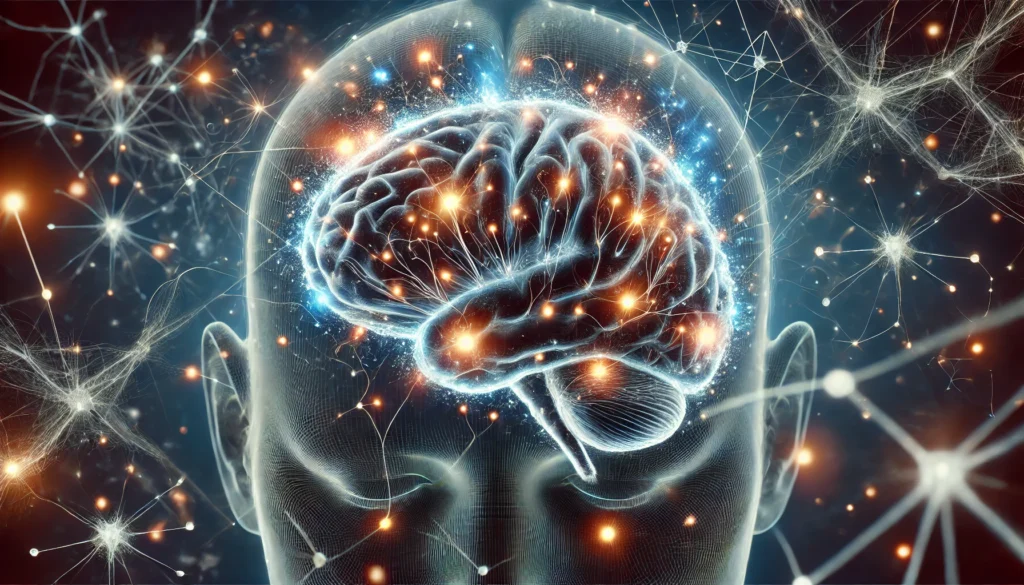Before we explore the causes, it’s essential to grasp the basic science behind how memory works. Memory is a complex process that involves encoding, storing, and retrieving information. The brain regions primarily involved include the hippocampus, amygdala, and prefrontal cortex. These areas work together to process and store different types of memories, such as short-term and long-term memories. When this system is disrupted, it can lead to memory difficulties.
You may also like: Understanding the Science Behind Lost Memory
The Role of the Hippocampus
The hippocampus plays a crucial role in forming new memories, particularly those related to facts and events. It acts as a sort of memory gateway, helping to convert short-term memories into long-term ones. When the hippocampus is damaged, as in Alzheimer’s disease, this process is disrupted, leading to forgetfulness and difficulty in forming new memories.
Amygdala’s Influence on Emotional Memory
The amygdala is closely linked with emotional memory. It helps attach emotional significance to memories, which can aid in their recall. For instance, highly emotional events are often remembered more vividly because the amygdala enhances the encoding of these memories. Disruptions in the amygdala’s function can make it harder to recall emotionally charged memories.
Prefrontal Cortex and Working Memory
The prefrontal cortex is responsible for managing working memory, which is the ability to hold and manipulate information over short periods. This brain region is crucial for tasks that require concentration and decision-making. Challenges with working memory can affect day-to-day functions, such as following conversations or solving problems.
Memory Encoding and Retrieval
Memory encoding involves transforming information into a construct that can be stored within the brain. Effective encoding is critical for accurate memory retrieval. If encoding is disrupted, retrieving the stored information becomes challenging. Factors such as attention, focus, and repetition play vital roles in the encoding process.
The Impact of Neuroplasticity
Neuroplasticity refers to the brain’s ability to reorganize itself by forming new neural connections. This adaptability is essential for learning and memory. Engaging in activities that stimulate the brain can enhance neuroplasticity, thereby improving memory and cognitive function over time.
Common Causes of Memory Loss
Understanding why memory loss occurs can help alleviate concerns and guide steps to improve memory function. Several factors can contribute to memory difficulties, and they often overlap.
Stress and Anxiety
One of the most common reasons people find it difficult to remember things is stress. High levels of stress or anxiety can interfere with the brain’s ability to encode and retrieve memories. When you’re stressed, your body releases cortisol, a hormone that can impair memory by disrupting the brain’s processes.
Cortisol’s Effect on Memory
Cortisol, when present in high levels due to chronic stress, can shrink the hippocampus, thereby affecting memory formation. Short-term stress can sometimes enhance memory, but prolonged exposure is detrimental. Managing stress through relaxation techniques can help mitigate its negative effects on memory.
Anxiety and Memory Distraction
Anxiety often leads to distraction, making it hard for the brain to focus on encoding memories. When the mind is preoccupied with anxious thoughts, it struggles to register and retain new information. Techniques like mindfulness can help improve focus and memory retention in anxious individuals.
Stress Management Techniques
Implementing stress management strategies, such as exercise, deep breathing, or engaging in hobbies, can reduce cortisol levels. These activities not only alleviate stress but also promote cognitive health by enhancing memory function.
Sleep Deprivation
Sleep is essential for memory consolidation, the process by which short-term memories are transformed into long-term ones. Lack of adequate sleep can significantly impact your ability to remember information. If you find yourself saying, “I can’t remember anything,” it might be time to evaluate your sleep habits.
The Sleep Cycle and Memory
During sleep, the brain undergoes several stages, each playing a role in memory processing. REM sleep, in particular, is crucial for emotional memory consolidation. Disrupted sleep patterns can impair this process, leading to memory difficulties.

Sleep Hygiene for Better Memory
Good sleep hygiene practices, such as maintaining a regular sleep schedule, creating a restful environment, and avoiding screens before bedtime, can enhance sleep quality. Improved sleep supports better memory consolidation and recall.
The Role of Dreams in Memory
Dreams are thought to play a part in processing and storing memories. While their exact role remains a mystery, some researchers believe that dreams help integrate new information with existing memories, thereby aiding learning and memory retention.
Nutritional Deficiencies
The brain requires a variety of nutrients to function optimally, including omega-3 fatty acids, B vitamins, and antioxidants. Deficiencies in these nutrients can lead to cognitive decline and memory loss. Ensuring a balanced diet rich in these nutrients can support memory health.
Importance of Omega-3 Fatty Acids
Omega-3 fatty acids are vital for brain health, contributing to the structure and function of brain cells. They can enhance cognitive function and reduce the risk of memory loss. Incorporating foods like fish, flaxseeds, and walnuts can boost omega-3 intake.
B Vitamins and Cognitive Function
B vitamins, particularly B6, B9, and B12, play a significant role in brain health. They help produce neurotransmitters and maintain nerve function. A deficiency in these vitamins can result in cognitive impairments and memory issues.
Antioxidants and Brain Protection
Antioxidants combat oxidative stress, which can damage brain cells and lead to cognitive decline. Consuming antioxidant-rich foods, such as berries, nuts, and dark chocolate, can protect the brain and support memory health.
Medications
Certain medications can have side effects that impact memory. Antidepressants, antihistamines, and even some blood pressure medications can cause memory lapses. If you suspect your medication might be affecting your memory, consult with your healthcare provider for guidance.
Side Effects of Common Medications
Many medications can interfere with neurotransmitter activity, leading to memory issues. Understanding these side effects can help individuals make informed decisions about their treatment options. It’s important to weigh the benefits and risks of any medication.
Consulting Healthcare Providers
If medication side effects are suspected, a healthcare provider can offer alternatives or adjust dosages to minimize cognitive impact. Regular consultations ensure that memory concerns are addressed promptly and effectively.
Alternative Treatments and Memory
In some cases, alternative treatments or lifestyle adjustments can reduce the need for medications that affect memory. Exploring these options with a healthcare provider can lead to improved cognitive outcomes without sacrificing health benefits.
Medical Conditions and Memory Loss
Several medical conditions are known to affect memory, from mild cognitive impairment to more severe conditions.
Alzheimer’s Disease and Dementia
Alzheimer’s disease and other forms of dementia are among the most well-known causes of memory loss. These conditions are characterized by a progressive decline in cognitive function, affecting memory, thinking, and behavior.
Early Symptoms of Alzheimer’s
Early signs of Alzheimer’s include forgetfulness, difficulty with problem-solving, and confusion with time or place. Recognizing these symptoms can lead to early intervention and potentially slow the disease’s progression.
The Progression of Dementia
Dementia progresses through stages, each with worsening symptoms. Understanding these stages helps caregivers provide appropriate support and plan for future care needs. Interventions at early stages can help maintain quality of life.
Treatment Options for Dementia
While there is no cure for dementia, treatments focus on managing symptoms and improving quality of life. Medications, cognitive therapies, and lifestyle changes can help slow cognitive decline and support memory function.
Depression
Depression can mimic memory loss, as it often leads to difficulties in focusing, making it hard to encode new memories. This is sometimes referred to as “pseudo-dementia,” where the memory issues are related to mood rather than neurodegenerative processes.
Depression’s Impact on Cognition
Depression can cause cognitive impairments, including memory problems, due to its effects on concentration and motivation. Addressing depression through therapy or medication can improve cognitive function and alleviate memory difficulties.
Recognizing Pseudo-Dementia
Pseudo-dementia presents with memory complaints similar to dementia but is reversible with proper treatment. Differentiating between depression-related memory issues and true dementia is crucial for effective intervention.
Treatment and Support for Depression
Effective treatments for depression include psychotherapy, medication, and lifestyle changes. Support from mental health professionals and loved ones is essential in managing symptoms and improving overall well-being.
Thyroid Problems
The thyroid gland produces hormones that regulate metabolism. Both hypothyroidism (underactive thyroid) and hyperthyroidism (overactive thyroid) can lead to memory issues. Proper diagnosis and treatment are crucial for addressing these symptoms.
Hypothyroidism and Cognitive Function
Hypothyroidism can cause cognitive impairments, including memory loss, due to slowed metabolic processes. Treatment with thyroid hormone replacement can often reverse these cognitive issues.
Hyperthyroidism and Memory Challenges
Hyperthyroidism can lead to anxiety, restlessness, and memory problems. Managing thyroid levels through medication or surgery can improve cognitive symptoms and overall health.
The Importance of Thyroid Screening
Regular thyroid screenings can detect imbalances early, allowing for timely treatment. This proactive approach helps maintain cognitive health and prevent memory-related complications.
Lifestyle Factors and Memory
Your lifestyle choices can also play a significant role in memory health.
Alcohol and Substance Abuse
Excessive alcohol consumption and substance abuse can lead to both short-term and long-term memory loss. Alcohol, in particular, can affect the hippocampus, a critical area for memory formation.
Effects of Alcohol on the Brain
Alcohol can disrupt neurotransmitter function and damage brain cells, leading to memory impairments. Limiting alcohol intake can protect brain health and support memory function.
Substance Abuse and Cognitive Decline
Substance abuse alters brain chemistry, impacting memory and decision-making. Recovery programs and support groups can help individuals overcome substance-related memory issues.
Recovery and Memory Improvement
Sobriety can lead to improvements in memory and cognitive function. Engaging in healthy lifestyle changes and cognitive therapies during recovery supports brain health and enhances memory.

Lack of Mental Stimulation
Keeping your brain engaged is crucial for maintaining memory function. Activities like reading, playing musical instruments, or solving puzzles can stimulate brain activity and promote cognitive health.
Cognitive Activities for Brain Health
Engaging in mentally stimulating activities keeps the brain active and supports neuroplasticity. Regular participation in hobbies or learning new skills can improve memory and overall cognitive function.
The Role of Creativity in Memory
Creative activities, such as painting or writing, encourage different brain areas to work together, enhancing memory and problem-solving skills. Incorporating creativity into daily life can boost cognitive resilience.
Lifelong Learning and Memory
Continuing education and learning new skills throughout life can protect against cognitive decline. Pursuing intellectual interests keeps the mind sharp and enhances memory retention.
Social Engagement
Social interactions can provide mental stimulation and improve mood, both of which are beneficial for memory. Engaging in social activities can reduce the risk of memory decline by keeping the mind active.
The Cognitive Benefits of Socializing
Socializing challenges the brain with new experiences and conversations, promoting memory health. Regular social engagement can improve cognitive function and emotional well-being.
Building Strong Social Connections
Strong social networks provide emotional support and cognitive stimulation. Participating in community groups or clubs can enhance social connections and support memory health.
Combating Isolation and Memory Loss
Isolation can lead to cognitive decline and memory issues. Staying connected with friends and family helps combat loneliness and supports brain health, reducing the risk of memory problems.
Strategies to Improve Memory
While some factors affecting memory are beyond our control, there are several strategies you can adopt to enhance your memory.
Regular Exercise
Physical activity increases blood flow to the brain and can promote the growth of new neurons, improving memory and cognitive function.
The Impact of Aerobic Exercise
Aerobic exercises, such as walking, cycling, or swimming, boost cardiovascular health and enhance brain function. Regular aerobic activity supports memory by increasing neuroplasticity and reducing stress.
Strength Training and Cognitive Health
Strength training exercises improve muscle health and can also benefit cognitive function. Incorporating weight-bearing activities into your routine can enhance memory and overall brain health.
Incorporating Physical Activity Into Daily Life
Finding enjoyable physical activities ensures consistency and long-term benefits for memory. Simple changes, like taking the stairs or gardening, can contribute to improved cognitive function.
Healthy Diet
A diet rich in fruits, vegetables, whole grains, and lean proteins provides the essential nutrients needed for brain health. Foods high in antioxidants, like berries and nuts, can protect the brain from oxidative stress.
The Mediterranean Diet and Memory
The Mediterranean diet, rich in healthy fats and antioxidants, is associated with improved memory and cognitive function. Adopting this dietary pattern can reduce the risk of cognitive decline.
Hydration and Brain Function
Adequate hydration is essential for optimal brain function and memory retention. Drinking enough water throughout the day supports cognitive processes and prevents memory lapses.
Reducing Processed Foods for Cognitive Health
Limiting processed foods, which are high in unhealthy fats and sugars, can protect brain health. A diet focused on whole, natural foods supports memory and overall cognitive function.
Mindfulness and Meditation
Practices like mindfulness and meditation can reduce stress and improve focus, aiding in better memory retention. These practices encourage a calm mind, which is better equipped to encode and retrieve information.
The Benefits of Mindfulness for Memory
Mindfulness practice enhances attention and reduces stress, promoting memory retention. Regular mindfulness sessions can improve focus and support cognitive health.
Meditation Techniques for Cognitive Enhancement
Different meditation techniques, such as guided imagery or focused breathing, can improve memory. Incorporating meditation into daily routines supports mental clarity and memory function.
Developing a Regular Mindfulness Practice
Establishing a consistent mindfulness practice can enhance long-term memory and emotional well-being. Starting with short sessions and gradually increasing duration supports sustained cognitive benefits.
Cognitive Training
Engaging in cognitive exercises, such as memory games or learning new skills, can enhance memory function. These activities challenge the brain and promote neuroplasticity, the brain’s ability to adapt and change.
The Role of Brain Games in Memory
Brain games and puzzles stimulate cognitive function and improve memory. Regular engagement with these activities can strengthen neural connections and enhance cognitive resilience.
Learning New Skills for Cognitive Growth
Acquiring new skills, such as a musical instrument or a new language, supports brain health. These challenges promote memory retention and encourage neuroplasticity.
Combining Physical and Cognitive Activities
Activities that combine physical movement and cognitive challenges, like dance or martial arts, benefit both body and brain. These holistic approaches enhance memory and overall well-being.

Conclusion
Memory loss can be unsettling, but understanding its common causes can help alleviate anxiety and guide you toward effective solutions. Whether it’s through lifestyle modifications, nutritional adjustments, or seeking medical advice, there are numerous ways to support and improve your memory. By staying informed and proactive, you can better manage memory challenges and maintain cognitive health.
Incorporating these strategies into your routine can help mitigate memory difficulties and promote a sharper, more resilient mind. Remember, it’s not uncommon to experience memory lapses, but with the right approach, you can enhance your memory and overall brain health.
Further Reading:
Why Can’t I Remember Anything?
6 Types of Normal Memory Lapses and (Why You Needn’t Worry About Them)
I’m slowly not able to remember where and what I’m doing daily.
Important Note: The information contained in this article is for general informational purposes only, and should not be construed as health or medical advice, nor is it intended to diagnose, prevent, treat, or cure any disease or health condition. Before embarking on any diet, fitness regimen, or program of nutritional supplementation, it is advisable to consult your healthcare professional in order to determine its safety and probable efficacy in terms of your individual state of health.
Regarding Nutritional Supplements Or Other Non-Prescription Health Products: If any nutritional supplements or other non-prescription health products are mentioned in the foregoing article, any claims or statements made about them have not been evaluated by the U.S. Food and Drug Administration, and such nutritional supplements or other health products are not intended to diagnose, treat, cure, or prevent any disease.


